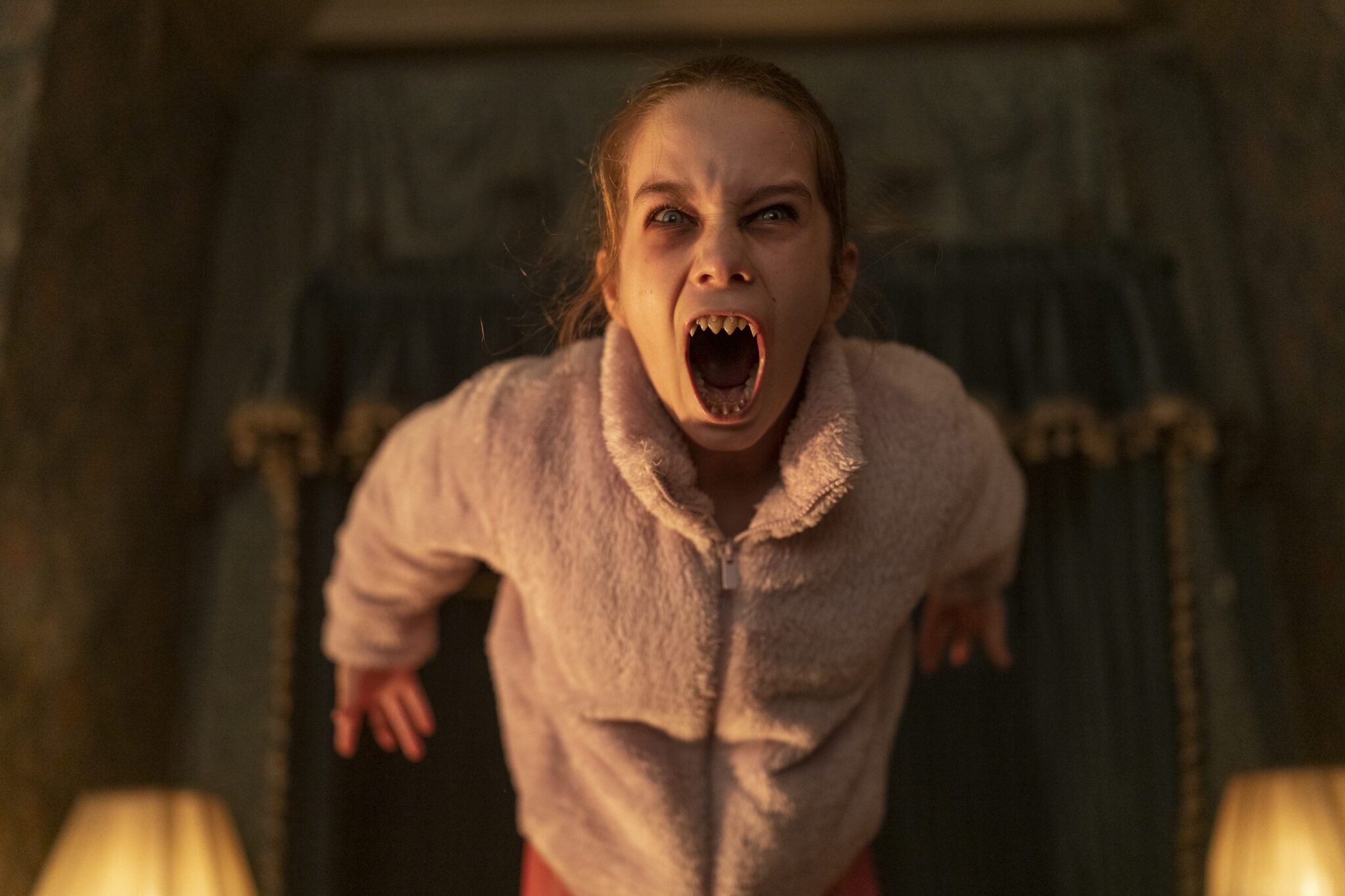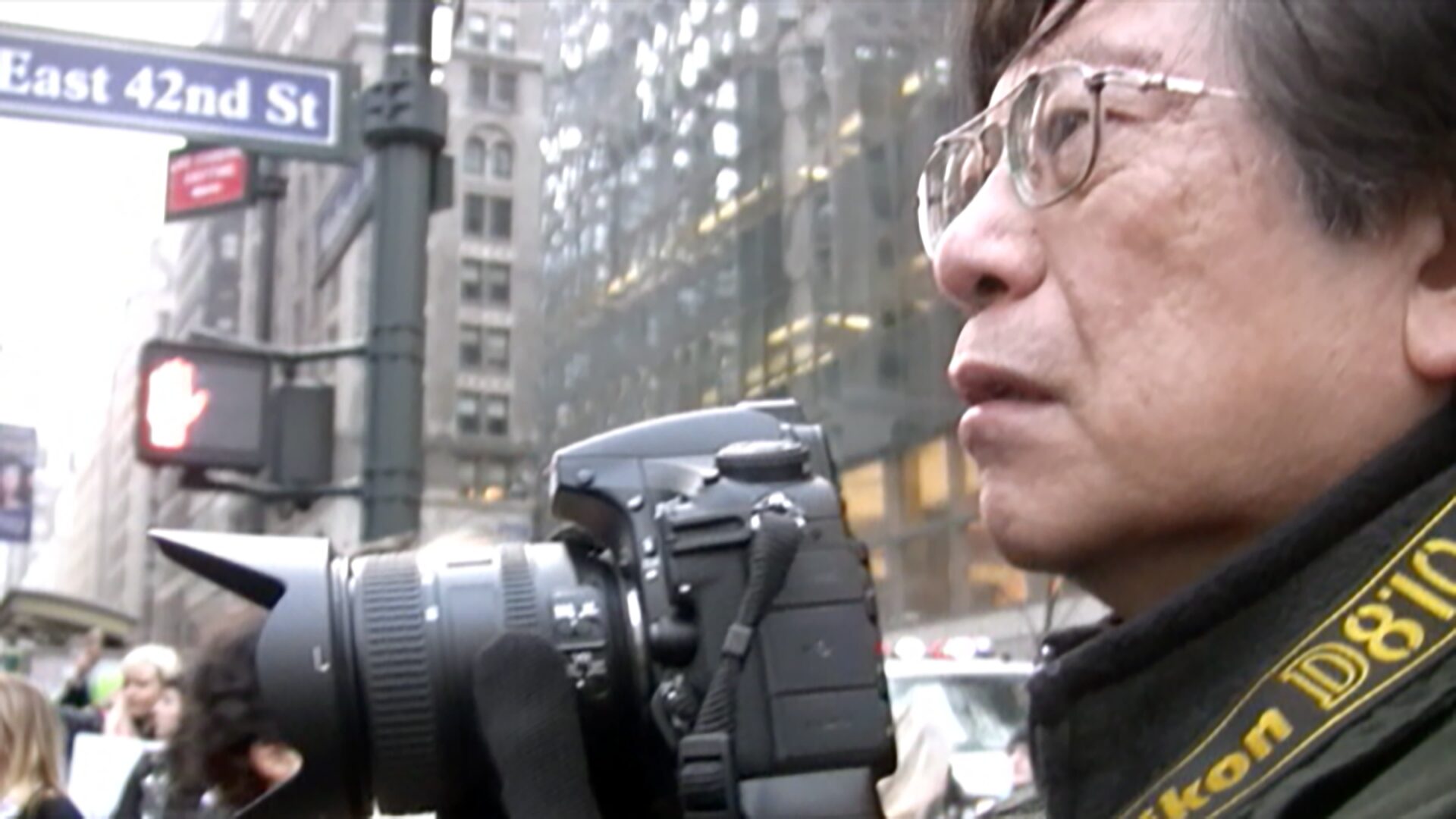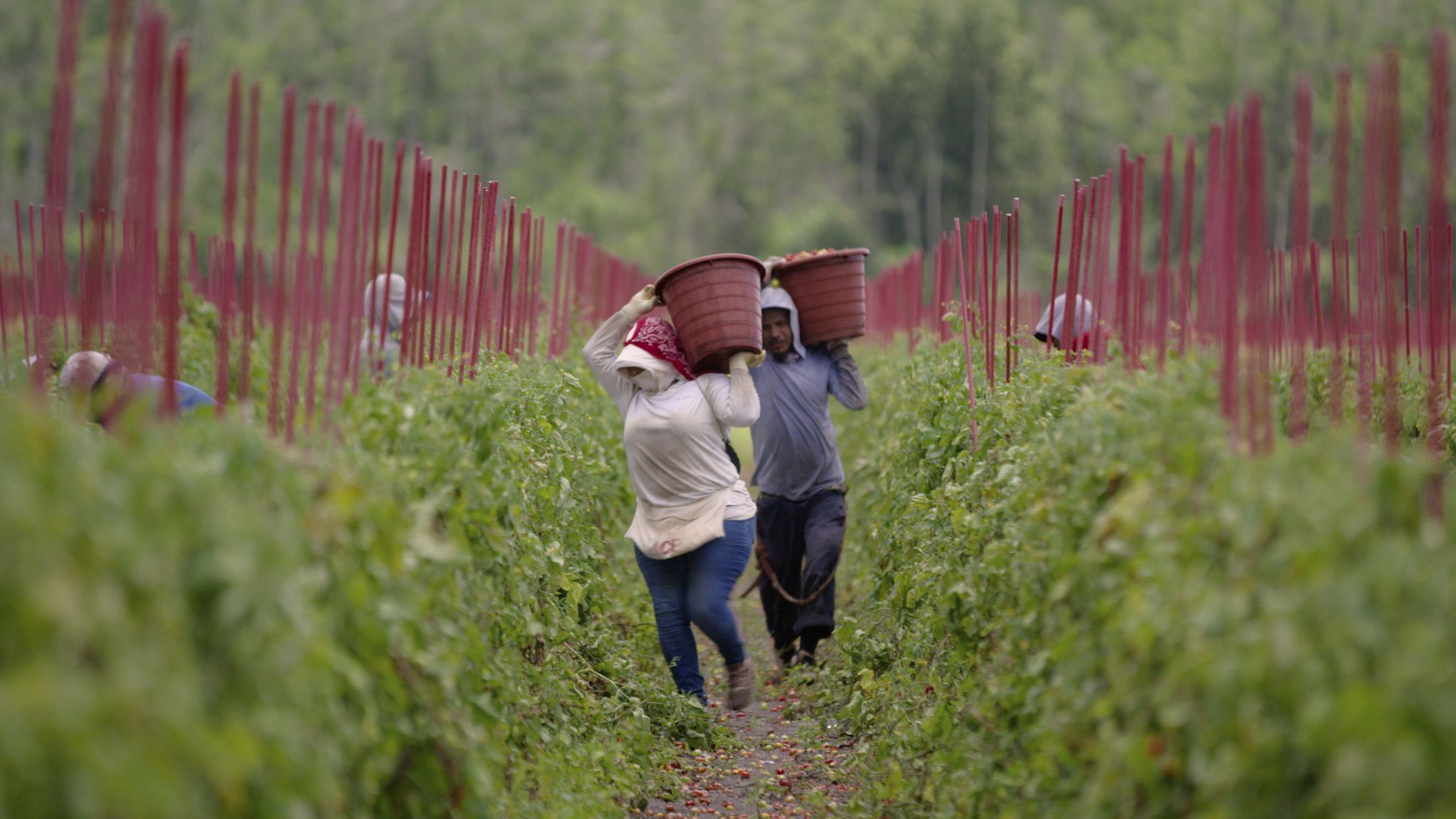
It really should not be a surprise that there?s a strong connection between music and the battle against racial injustice. From doo wop to folk music to rap music, it seems that youth often look to their most popular artists to become the modern-day prophets for their generation.
But 70s punk music? I admit that that one was new.
In her new documentary,?White Riot, director Rubika Shah documents the amazing events that took place during the social upheaval during the late-1970s Britain in the midst of the punk rock revolution. As bands like The Clash and Steel Pulse are beginning to make their musical mark on the world, the country is also deeply divided over immigration issues.As The National Front, a far-right political party led by Enoch Powell, continues to gain strength, music photographer Red Saunders calls for rock to become a force against racism.?While history?s record of social upheaval in the 60s and 70s is well-documented, somehow the story of Rock Against Racism has gone largely unknown in our global culture. Having just discovered the story recently, Shah believed that she and her team had found something special that people needed to know.
?We didn’t know about it until five years ago,? she begins. ?I found it with my producer Ed Gibbs. He’s also the writer of the film, so we’ve been making it together for five years. We were really interested in music and especially music in the 70s. This was a story that came about because we saw the footage of the Clash at the Carnival. I know that part [of the story] quite well and so I wondered, just on the general knowledge level, what was the Carnival? What was that festival? I hadn’t heard of it before. As I started digging deeper, the story became bigger and bigger because then I found out it was a Rock Against Racism carnival as such. Then, I found out that all these people had marched from Trafalgar Square to Victoria Park in support of Rock Against Racism. When I went back to the beginning of the story, which was two years prior to that, I found out that it was just a small group of people that got together and decided that they wanted to stand up against racism in the UK and actually started this as just a bit of an ad hoc group of people coming together and just doing something quite small. Then, over time, it became a big project for them.?
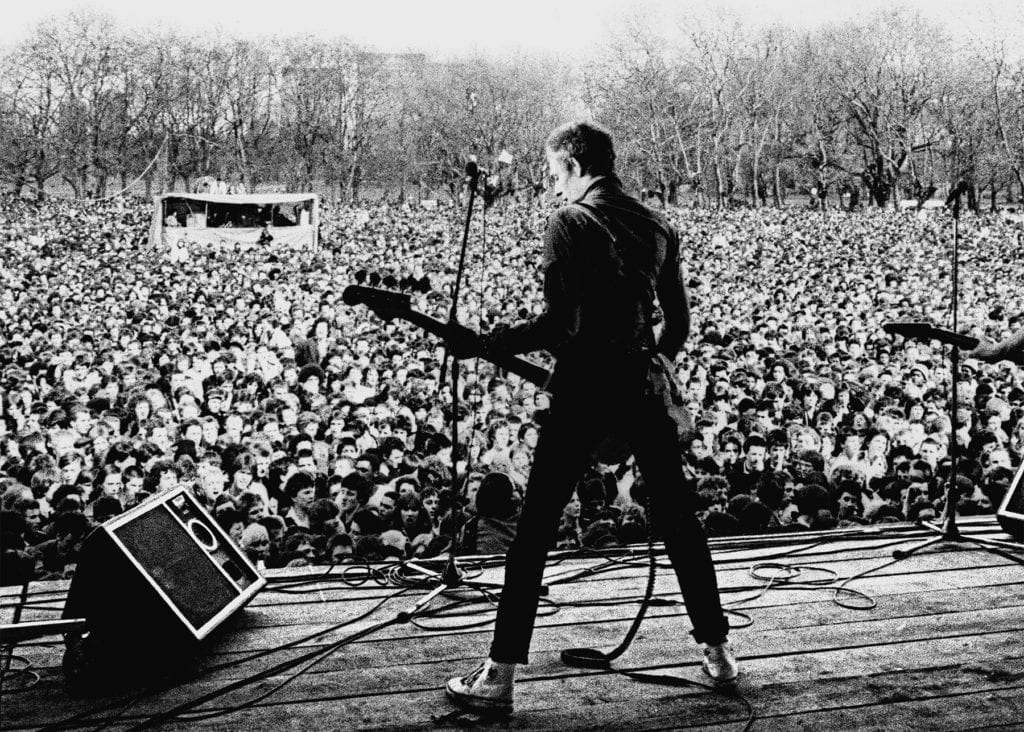
Chronicling the rise of Rock Against Racism,?White Riot?also looks at the toxic culture that helped create the movement. In particular, the film explores the rising power of The National Front, a politically far-right organization with a xenophobic agenda. As their sphere of influence continued to grow. The National Front began holding their own marches down the streets of London and even had support from the police.
?It’s a quite common feeling I think in the UK that the police were, especially back then, probably on the side of the National Front,? Shah claims. ?There’s a lot of criticism, I think, towards the police for overwhelmingly protecting National Front marches. I think there’s some footage in there where you see that actually there’s a couple of hundred people maybe marching and then, there’s two or three policemen on either side protecting them. I just think it was part of that era what was happening. I think that he was sympathizing with that point of view.?
As with research for any film, it can be difficult to dig up historical footage from long ago. Though the process was a challenge, her team continued to keep their eyes and ears open for anything they could find.
Says Shah, ?We spent a long time working on this film. So, we gathered material from lots of different people over the years. It became a bit of an exercise where, if we heard about a certain clip or gig, [we?d say] ?Let’s go and try and find that.? It was really difficult, but we managed to pull it together in the end,?
With this in mind, one of the film?s most startling revelations comes regarding comments made by Eric Clapton in support of the racist ideals of the National Front. At a time when past comments by celebrities come to light almost daily, Shah says that these ones may have been missed due to the limited press coverage outside the UK at the time.
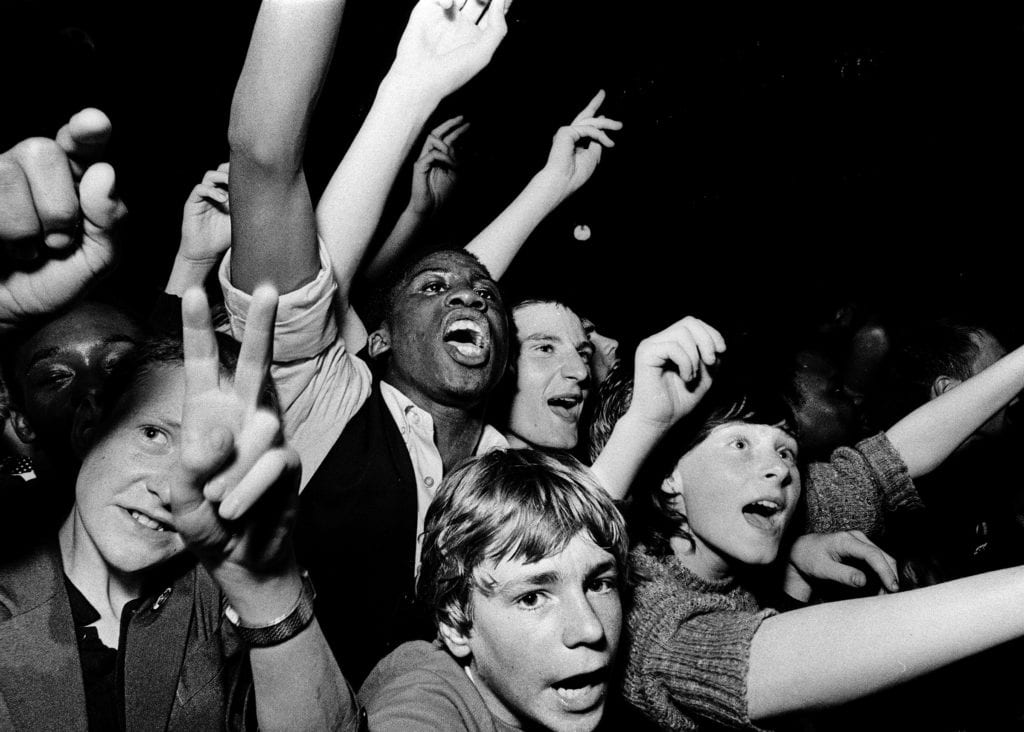
?It’s bizarre, isn’t it?,? she states, somewhat amazed. ?I mean, I found out about it five years ago. It’s something that happened and then has been, I guess, quietly just skimmed over in a sense. I think a lot of people know about it in the UK. It was a different time, you know. There weren’t camera phones. It was written about in the music press [but], unless you’re knowledgeable about that era, then you probably would know about it. Certainly, I don’t think overseas people will know about it because it was written in the music press in the UK and that was it. Then, it wasn’t really spoken about after that. So, it was the launch pad in a sense for Rock Against Racism. There were lots of things happening at that time. It wasn’t just Eric Clapton and it wasn’t just other artists. There was a whole swing to the right with just everyday people, National Front marching, politicians saying things on mainstream media. So, from a music point of view and from Red’s point of view, I think he just felt really hurt that someone like Eric Clapton said what he said.?
Coming in a moment when political activism has become a daily occurrence, Shah recognizes the important role that music plays in inspiring people to become united in one voice.
?It’s really important. We’re seeing it now with what’s happening with Black Lives Matter, but I think it was important in the 70s and throughout various different times in the last 50-60 years (and probably going back further),? Shah argues. ?I think what was interesting about what was happening here in the UK was that punk was just beginning to seep into the zeitgeist. Young people, in general I think, were angry, [whether they were] white, black, Asian. Across the board, I think young people were just fed up and that sense of anger was starting to seep into music.?
?I think that when the guys behind Rock Against Racism decided that they wanted to do something, it really started on a small level,? she continues. ?Their original idea was to just put on gigs. They would put some white bands and black bands together on equal billing, and they would pay everybody. It was really important that they did this because they recognized that musicians needed to be paid as well. It was a show of unity and an idea for all different audiences to come together. That was the reason behind it? There were more carnivals and there were more gigs and Rock Against Racism actually lasted another three or four years. Then, eventually, they just went off and did their own thing because essentially it was just a group of people coming together.?
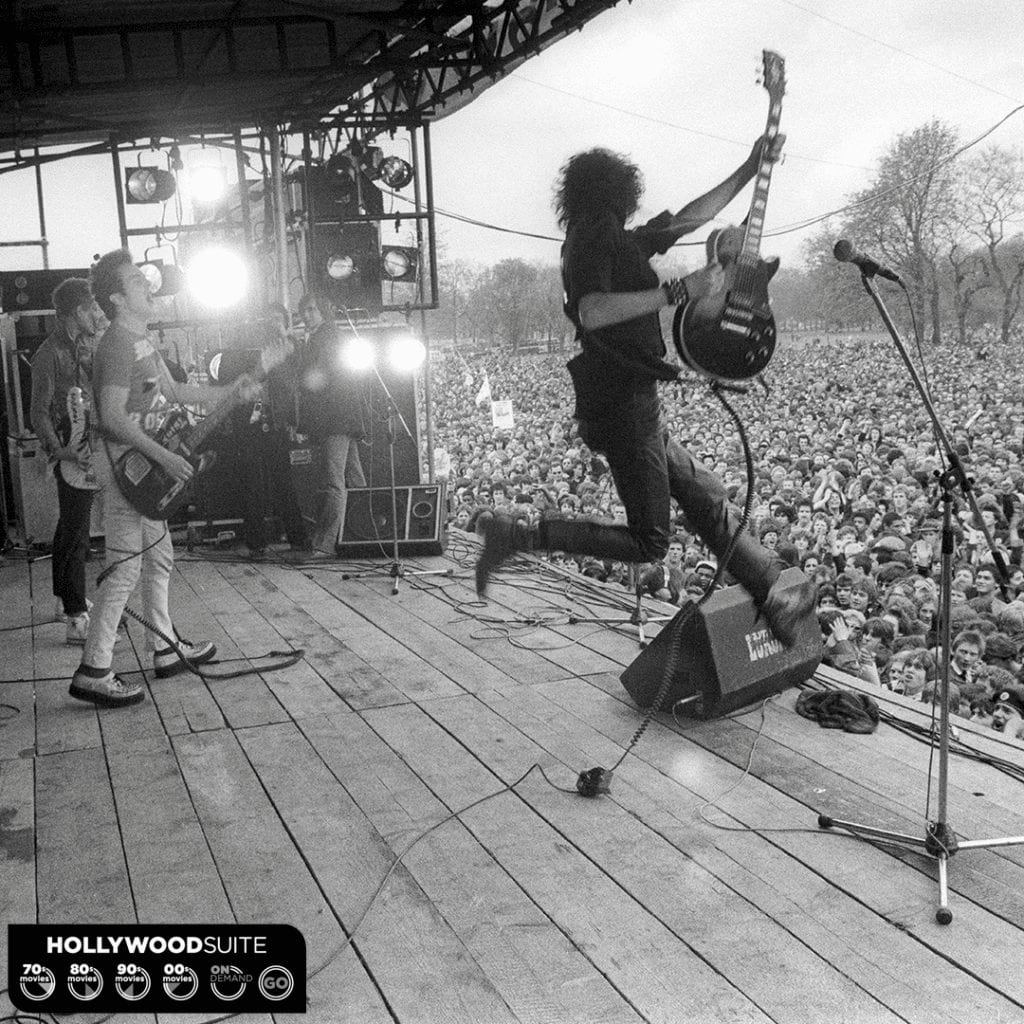
One of the most amazing aspects of?White Riot?is the fact that this cultural zeitgeist was able to grow at a time when communication to the masses was far more difficult. Even so, Shah notes that those involved were able to make the most of a fanzine culture that helped the beliefs of a few passionate people to become a large-scale movement.
?It’s this grassroots activism business,? she explains. ?So, it’s the way that people are able to mobilize like that. It’s people power. I mean, there was a lot of hard work going into that. They were able to tap into like-minded people in the print shop and get people involved. They had a lot of goodwill as well because printing was expensive. They didn’t have the money to do that, but they were able to slip in print runs at night and then get those papers on the back of the lorry, going out to wherever it was the next day to drop them into a music shop. Fanzine culture was right at that time. So, people knew where to look, to find out about music and the underground. It was literally like the analog equivalent of going viral is what they captured.?
Furthermore, though opportunity for people to speak their voice has become far easier, Shah sees that today’s changing media landscape has also created so many voices that cultural unity seems to have become more difficult.
?I feel like things are changing for sure. People [have] a lot of ways now to put our points of view across. Media has changed a lot. There’s Twitter, there’s Facebook. But then on the flip side, does that dilute the message? Is it harder to actually reach people? It’s difficult.??
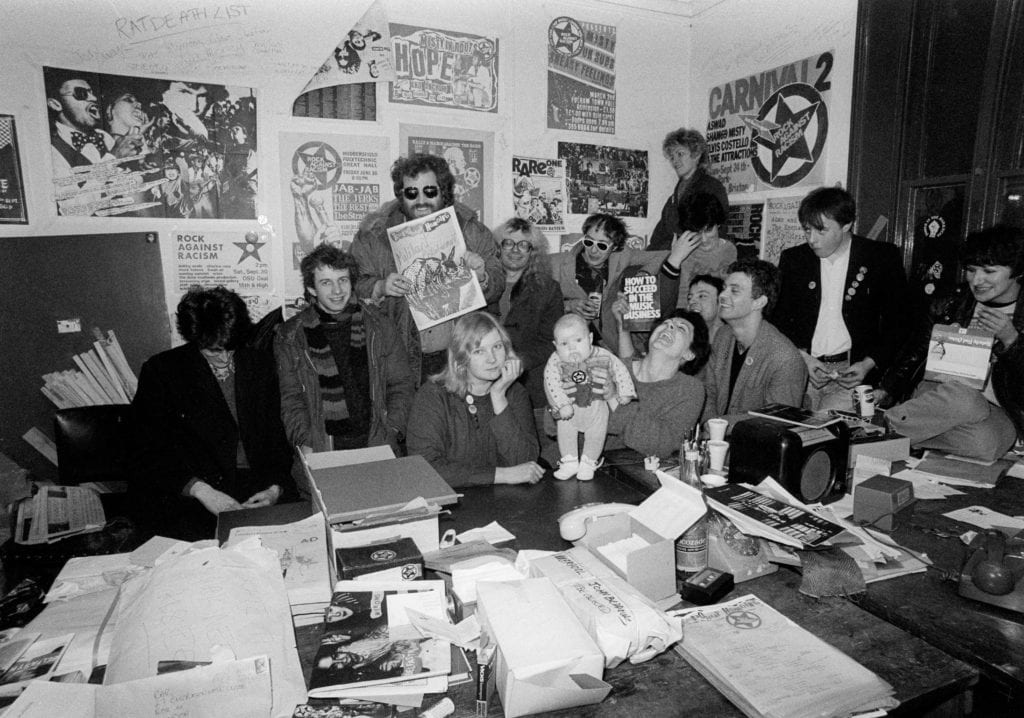
Though forty years have passed since the events of the Carnival, it truly is remarkable how much of the events of the late 70s resonates with what we?re seeing today. According to Shah, these similarities may actually be part of a pattern that extends back over the last century.
?When this happened in the late 70s, it was forty years after WWII and now, we’re forty years after the events of what happened in the late 70s,? she points out. ?It seems to be every forty years. I mean, there are things happening in between as well but I just feel like maybe there’s something in it. Maybe, we all like inching forwards, but sometimes it seems very slow that things are changing.?
For full audio of our interview with Rubika Shah, click here.
White Riot is currently streaming on VOD and select online theatres across Canada.


